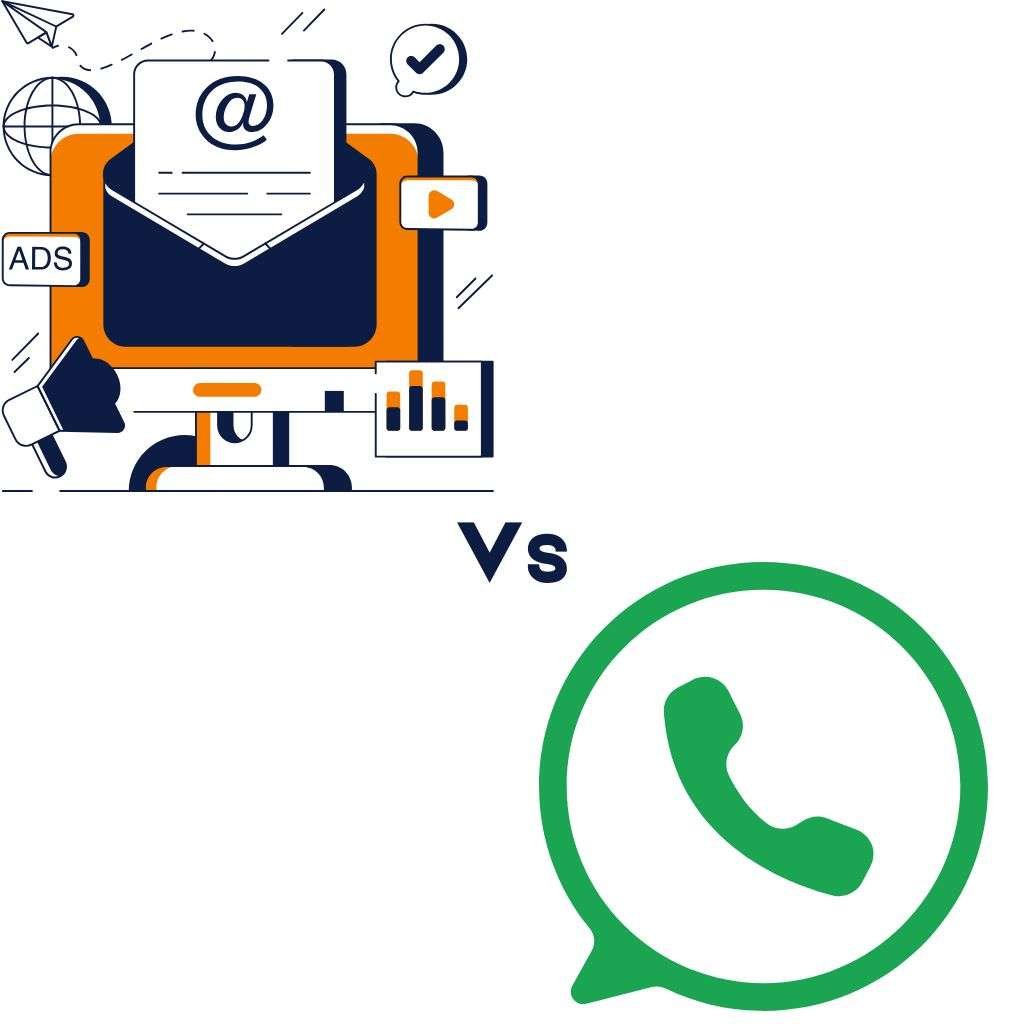Email Marketing vs WhatsApp Marketing: Which One Wins?

In the ever-evolving landscape of digital marketing, businesses are continually searching for the most effective tools to engage with their audience. Among the plethora of digital marketing tools available, email marketing and WhatsApp marketing have emerged as two of the most powerful methods for communication. But when it comes down to email marketing vs WhatsApp marketing, which one truly reigns supreme? In this blog post, we will delve deep into both strategies, exploring their strengths, weaknesses, and helping you decide which approach is best for your business.
Understanding Email Marketing
Email marketing has been a cornerstone of digital marketing for decades. It involves sending emails to a list of subscribers who have opted in to receive communications from your business. Here are some notable advantages:
Pros of Email Marketing:
Widespread Adoption: Nearly everyone has an email address, making it a universally accessible platform for communication.
Highly Customizable: Email marketing allows for personalized content, segmentation, and automation. With marketing automation tools, businesses can tailor their emails based on user behavior, preferences, and demographics.
Cost-Effective: Compared to traditional marketing channels, email marketing is relatively inexpensive. It provides a high return on investment (ROI)
In-Depth Analytics: Email platforms offer robust analytics that provides insights into open rates, click-through rates, and conversions, enabling businesses to refine their strategies effectively.
Cons of Email Marketing:
Spam Filters: Emails can easily end up in the spam folder, reducing visibility and engagement.
Overcrowded Inbox: With users receiving countless emails every day, standing out can be a challenge.
Design Limitations: While emails can be customized, design limitations and user experience can vary dramatically across different devices and email clients.
Exploring WhatsApp Marketing
WhatsApp marketing, on the other hand, is a relatively new player in the digital marketing arena. This platform allows businesses to engage with customers through one-on-one chats, groups, and broadcast lists. Here are the key benefits:
Pros of WhatsApp Marketing:
High Engagement Rates: WhatsApp boasts incredibly high open rates, often exceeding 90%. Messages are usually read within minutes of receipt, making it a powerful tool for real-time communication.
Personal Touch: WhatsApp allows for a more personal interaction, fostering a sense of closeness and trust between the business and the customer.
Multimedia Messaging: Businesses can send images, videos, and voice messages, enhancing the overall communication experience.
Instant Feedback: The platform enables immediate customer feedback, facilitating quick responses and engagement.
Cons of WhatsApp Marketing:
Limited Reach: Not everyone uses WhatsApp, and businesses may miss out on potential customers who prefer traditional communication methods.
Privacy Concerns: WhatsApp is often perceived as a personal messaging service, which may deter users from engaging with brands.
Regulatory Challenges: WhatsApp has specific guidelines for business communications. Non-compliance can lead to account restrictions or bans.
Email Marketing vs WhatsApp Marketing: A Comparative Analysis
When pitting email marketing against WhatsApp marketing, it’s crucial to consider various factors:
Audience Reach
Email marketing has a broader reach due to its universal nature. In contrast, WhatsApp marketing is limited to users of the app, which may not represent the entire target demographic.
Engagement Levels
WhatsApp delivers higher engagement rates, whereas email marketing often struggles with open rates due to spam filters and crowded inboxes.
Personalization vs Scalability
While email marketing allows for a high degree of personalization through segmentation, WhatsApp can offer a more genuine interaction, but it may be harder to scale for large audiences.
Content Type
Email marketing is often text-heavy and may include long-form content, whereas WhatsApp favors concise messages, multimedia content, and quick interactions.
Cost and Resources
Both methods are cost-effective, but the resources required for effective email marketing, such as design and automation tools, can be significant. WhatsApp marketing typically requires less investment in design.
Which One Wins?
Ultimately, the decision between email marketing and WhatsApp marketing depends on your business objectives, target audience, and the nature of your products or services. For comprehensive digital marketing strategies, businesses may benefit from integrating both channels. Email marketing can handle bulk communications and nurture leads over time, while WhatsApp marketing can provide immediate engagement and foster strong customer relationships.
In the battle of email marketing vs WhatsApp marketing, the true winner is the one that aligns best with your marketing goals and audience preferences. Embrace the strengths of both platforms, and you’ll create a robust marketing strategy that maximizes engagement and builds lasting relationships with your customers.
Remember, the key to successful digital marketing is not just choosing the right tools but also leveraging them effectively through marketing automation and thoughtful engagement strategies.


